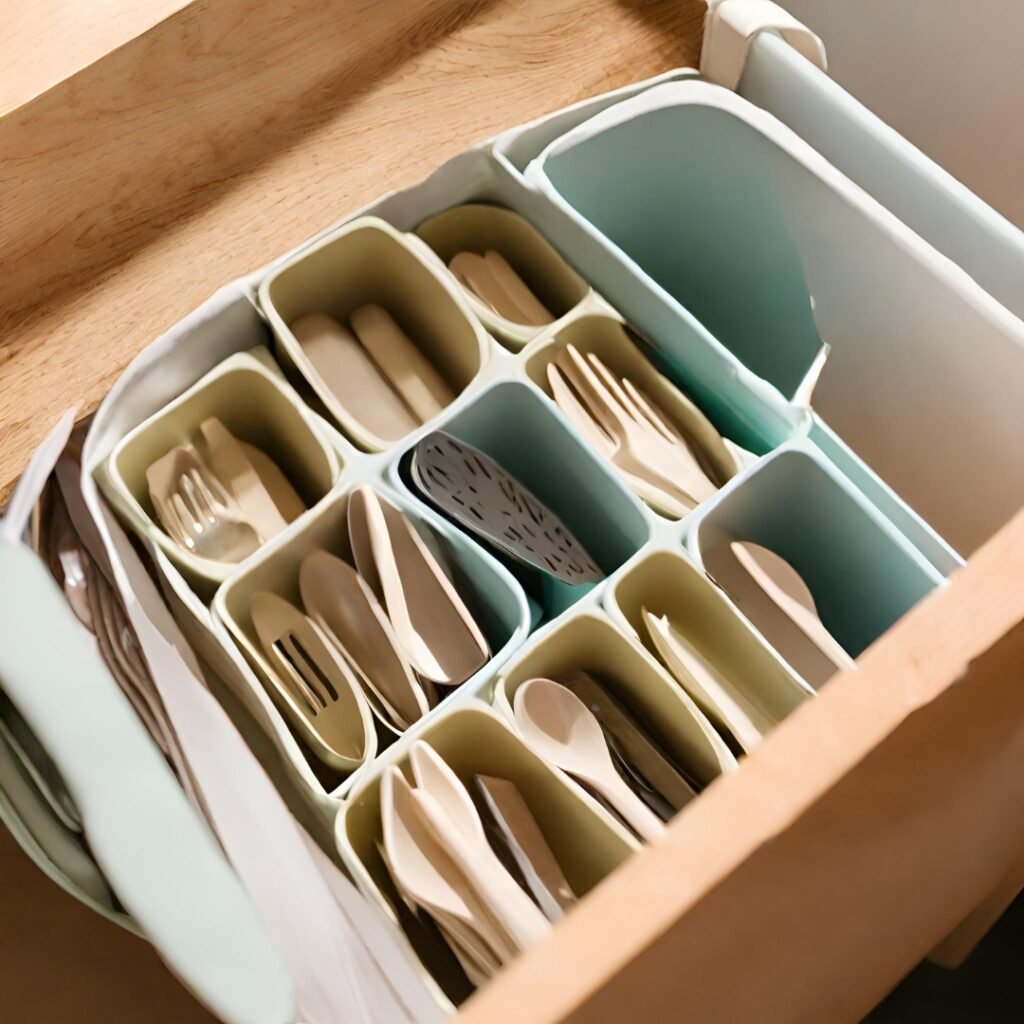Table of Contents
In the culinary realm, maintaining food safety is paramount. Proper utensil storage plays a crucial role in preventing the spread of harmful bacteria and ensuring meals are free from contamination.
Understanding the Risks of Improper Utensil Storage
Improper utensil storage can lead to the growth and transfer of bacteria, increasing the risk of foodborne illnesses. When utensils are not adequately cleaned and sanitized, they can harbor microorganisms that can contaminate food items, leading to health issues such as nausea, vomiting, diarrhea, and even severe complications.
Approved Methods for Storing In-Use Utensils

Adherence to approved methods for storing in-use utensils is essential for maintaining food safety. The following methods effectively prevent bacterial growth and ensure utensils remain sanitary:
- Dipper Well with Continuous Running Water: A dipper well filled with running water provides a clean and sanitized environment for storing utensils. The continuous flow of water prevents bacterial growth and keeps utensils ready for use.
- Clean, Dry Surface: Utensils can be stored on a clean, dry surface for up to four hours. However, this method is less effective than using a dipper well, as bacteria can start to grow after a few hours.
- Refrigerated Unit: Utensils can be stored in a refrigerated unit at 41°F or below for up to 24 hours. This method effectively prevents bacterial growth and is suitable for storing utensils for extended periods.
- Container of Hot Water or Food: Utensils can be stored in a container of hot water or food maintained at 135°F or above for up to 24 hours. This method is effective in preventing bacterial growth and is suitable for utensils used in cooking or serving hot food items.
- Submerged in a Dipper Well with Continuous Running Water: This method is similar to the first method, but it is suitable for storing utensils for longer periods, up to 24 hours. The continuous flow of water ensures that utensils remain sanitized and free from bacterial growth.
Considerations for Storing In-Use Utensils
To further enhance food safety practices, consider the following guidelines when storing in-use utensils:
- Store Utensils for Raw Products Separately: Utensils used for handling raw meat, poultry, or seafood should be stored separately from utensils used for ready-to-eat foods to prevent cross-contamination.
- Ensure Utensil Handles Remain Outside Food Containers: When storing utensils in food containers, ensure the handles do not touch the food to prevent contamination.
- Regularly Check Utensils for Damage: Regularly inspect utensils for cracks, dents, or other damage. Damaged utensils should be discarded, as they can harbor bacteria and pose a safety hazard.
By following these approved methods and considerations, you can effectively store in-use utensils and maintain a hygienic food preparation environment.
FAQs (Frequently Asked Questions)
How long can utensils be stored on a clean, dry surface?
Utensils can be stored on a clean, dry surface for up to four hours. However, it is important to note that this method is less effective than using a dipper well, as bacteria can start to grow after a few hours. For extended storage, it is recommended to use one of the other approved methods.
What temperature is required for storing utensils in hot water or food?
Utensils should be stored in hot water or food maintained at a temperature of 135°F or above. This temperature is effective in preventing bacterial growth and ensuring utensils remain sanitized.
Can utensils be stored in ice water?
No, utensils should not be stored in ice water. While ice water can keep utensils cold, it does not prevent bacterial growth. In fact, ice water can actually increase the risk of bacterial growth by providing a moist environment for bacteria to thrive.
What is the purpose of a dipper well?
A dipper well is a container filled with running water that is used to store utensils. The continuous flow of water prevents bacterial growth and keeps utensils sanitized. Dipper wells are commonly used in foodservice establishments, but they can also be used in home kitchens.
How can I prevent cross-contamination when storing utensils?
To prevent cross-contamination when storing utensils, follow these guidelines:
- Store utensils used for raw meat, poultry, or seafood separately from utensils used for ready-to-eat foods.
- Use different colored cutting boards for raw and ready-to-eat foods.
- Wash your hands thoroughly with soap and water after handling raw meat, poultry, or seafood.
By following these simple guidelines, you can help to prevent the spread of bacteria and keep your food safe.
